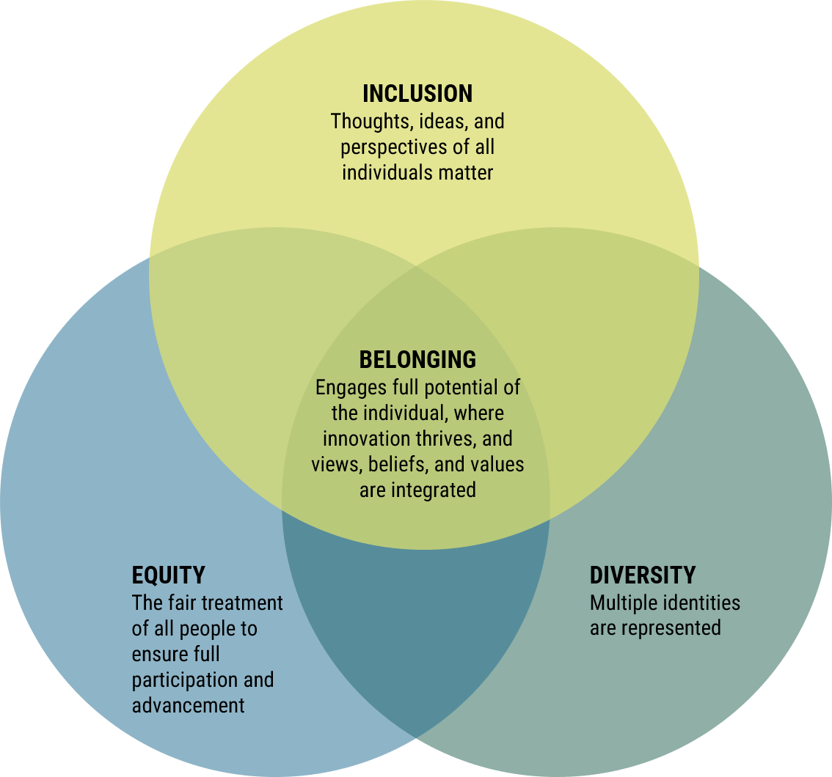DEI as bureaucratic grift

The buzzword acronym in much of the corporate and educational world is DEI, which stands for Diversity, Equity and Inclusion. A whole cottage industry has sprung up around this concept, with plenty of self-proclaimed experts selling their services to institutions, offering various interventions that will supposedly make those institutions more diverse, equitable, and inclusive.
I don’t know what the literature examining the extent to which any of this stuff actually works reveals, but from my limited exposure to it in the law school world, I’m pretty skeptical. Consider the following proposed additions to the ABA’s law school accreditation requirements, which are now working their way through the ABA’s regulatory process:
Standard 303: Curriculum . . .
(c) A law school shall provide education to law students on bias, cross-cultural competency, and racism:
(1) at the start of the program of legal education, and
(2) at least once again before graduation.
For students engaged in law clinics or field placements, the second educational occasion will take place
before, concurrent with, or as part of their enrollment in clinical or field placement courses.Interpretation 303-5
Professional identity focuses on what it means to be a lawyer and the special obligations lawyers have to
their clients and society. The development of professional identity should involve an intentional
exploration of the values, guiding principles, and well-being practices considered foundational to
successful legal practice. Because developing a professional identity requires reflection and growth over
time, students should have frequent opportunities for such development during each year of law school
and in a variety of courses and co-curricular and professional development activities.
Interpretation 303-6
With respect to 303(a)(1), the importance of cross-cultural competency to professionally responsible
representation and the obligation of lawyers to promote a justice system that provides equal access and
eliminates bias, discrimination, and racism in the law should be among the values and responsibilities
of the legal profession to which students are introduced.
Interpretation 303-7
Standard 303(c) may be satisfied by:
(1) Orientation sessions for incoming students on bias, cross-cultural competency, and racism;
(2) Guest lectures by experts in the areas of bias, cross-cultural competency, and racism;(3) Courses on racism and bias in the law; or
(4) Other educational experiences that educate students in cross-cultural competency.
While law schools need not add a required upper-division course to satisfy this requirement, law schools
must demonstrate that all law students are required to participate in a substantial activity designed to
reinforce the skill of cultural competency and their obligation as future lawyers to work to eliminate
racism in the legal profession.
Interpretation 303-8
Standard 303 does not prescribe the form or content of the education on bias, cross-cultural
competency, and racism required by Standard 303(c).
There’s a right wing and centrist critique of this kind of thing, which consists of complaints that it’s an infringement on academic freedom to require law schools to try to create less racist and more culturally competent lawyers — or as those who labor under the Weis Man’s Burden would say, via scare quotes, less “racist” and more “culturally competent” lawyers.
I don’t agree with that critique, since I take it as self-evident that any extensive study of the American legal system that’s both intellectually rigorous and morally defensible will emphasize on appropriate pedagogical occasions, which will be many, both the racist past and racist present of that system, and strive to produce future lawyers who will attempt to ameliorate its racist future.
What I object to here is that this kind of accreditation kayfabe has literally nothing to do with accomplishing those goals, since its obviously a product of a bullshit institutional process, that aims to give the impression of doing something while not actually doing anything.
Specifically, idea that law schools can meaningfully advance anti-racism, anti-bias, and cultural competency — surely lifetime daily tasks for any person — by mandating that entering students attend some hour-long orientation session, or listen to some well-compensated DEI expert lecture to them, is absurd.
It’s yet another example of the magical thinking that law schools as institutions traffic in, when they claim that they are teaching people who are generally in the mid to late 20s, and have all already had at least 17 years of prior formal education, how to “think,” how to be “leaders,” how to be “ethical,” and all the other nonsense claims that are part and parcel of the standard law school spiel.
I’m also struck by how, if law schools are supposed to be producing lawyers who promote “equal access” to the legal system, there could not be a more devastating criticism of their (our) pedagogical prowess than the actually existing American legal system.
The overarching quality to all this kind of thing is the total lack of any genuine intellectual seriousness. Merely studying racism, social inequality, and other social ills — which by the way huge numbers of both law students and law faculty don’t actually believe are current ills, given that racism in America was eliminated by the Civil Rights Act of 1964, and social inequality is just another name for the Wisdom of the Market — in something other than the most superficial way is hard enough.
Pretending that you’re going to achieve some sort of social progress by going through the motions of this kind of bureaucratized ritual is an insult to what universities, at least, are supposed to be about.


